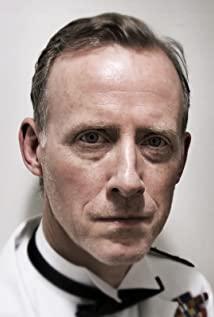In junior high school, he recites Jean Valjean’s life experience while preparing for the literary common sense test. With a few lines of words "get it on paper", he hastily passed a rough experience of soul salvation into the holy. Feeling the shallowness of my youth and the uselessness of exams, I simplified a classic that condensed the thoughts of saints as a bargaining chip for me to earn points.
Closer to home.
This is a Christian film, derived from a classic that pushes the world to "the way of a saint". I don’t know much about Les Misérables and Hugo, and I don’t know much about the Republican uprisings in Paris around 1832. Here I can only comprehend what I have seen and heard.
There are spoilers, but after all, it is derived from literary masterpieces and should not affect it.
[Sing the Heart]
All the inner monologues and details of the movie are sung in the form of singing. Sometimes ups and downs and sometimes melodious music has become a vehicle for conveying the inner words of the characters: the low grievances of prisoners waiting for crimes, the sullen and helpless groans of the cold and weakened poor, the cry of fighting spirits of the high-spirited revolutionaries, and the wealth of the upper class. The tumult of people and the army suppressed by violence, and the reverberation of the voices of the protagonists at different stages of life...
The music that needs to be listened to helps us remove the obstacles caused by the prejudice in our hearts, and helps us to better understand my characters. Inner world. It has to be said that this kind of treatment has successfully helped the film to condense and crystallize a magnificent classic in just two hours. Every character and every story has been molded into a statue, which makes our hearts tremble. Be baptized. This is where the musical dramatization succeeds.
Christianity is the religion with the most abundant songs in the world, and it is probably the same. Tell it in music, listen to it, feel it religiously, and bow down. But all these comprehensions are limited to the "lyrics".
After all, the poetic monologue and narration still depend on the meaning of the lyrics. Lyrics express meaning, they are externalized beings subject to context, so they can only comprehend the sacredness in the song, and glimpse the way of the saint, but they can’t really climb into the gods, pass through the narrow gate, and welcome the coming of God—— The way of the saint.
[Scene details]
Recalling the process of watching the movie, many ingenious scene treatments are impressive, and also aroused my many associations:
the big boat pulled by the tracker in the wind and rain at the beginning of the film, and the police officer Javert stood by when he wandered many times. The edge of the dangerous building in the city, the eye of God behind Jean Valjean during several inner monologues, the fading of Cosette in the candlelight of Fantine before his death, the ring of Marius, the red flag of the revolutionary army, the furniture piled up during the street battle The barricade fortress, the sink into which the police officer Javert fell...
These scenes and detailed treatments can easily make people think that they have been enlightened by religion, symbolized or carefully processed, and they always give people a kind of being shrouded by God and created. The atmosphere of "if God is", as if everyone, everything, and each story are arranged by God, throw you into that period of time and space, go to baptism and experience, wait until you die to see God, and then watch Look at what kind of mark this paragraph of story left on your soul.
But it is impossible to make a convincing comment on the details of the scene without combining the characters and the story. At this time, I can only summarize the outline of my heart.
[Everyone is a cup and a cup and a place to house the heavens]
Jean Valjean (Jackman)-"who am I?"
At the beginning of the story, he was a man with nothing. A tragedy for a sinner who served 19 years for stealing a loaf of bread. After being released from prison, his relatives died, had no job, was displaced, received surveillance, and were ostracized and disgusted by others... The lingering and panting loathed the whole world, and his blood-red eyes only thought of stealing and revenge. The saddest thing in the world is nothing more than this: God stripped him of his freedom, robbed him of his dignity and glory, severed the social relationship between his past and present, isolated him, isolated him, abandoned him, and finally saw his soul in the abyss of hell. Corruption, torn apart in hatred and resentment. ——This is the highest cruelty.
In the next story...
After accepting God’s call, he changed his face. He wanted to deny his previous self and gain a new life: eight years later, he became the mayor, built a factory to help others, and became a good man loved by the people, an upper-class gentleman; he faced the same experience. People, he gradually awakened, to find himself and avoid God's condemnation (inner condemnation): gave up his identity and confessed his past-24601; in the process of keeping his promises and taking care of Cosette, he discovered that he is a human being , The need to love and be loved: began to evade hunting, hiding everywhere; after seeing the love between Cosette and Marius and witnessing the enthusiasm of the young revolutionaries, he realized that he would bring happiness and light to the world—— Especially the next generation-mission.
After experiencing all this, Valjean completed the process of self-salvation and transcendent sanctification: "I am Valjean."
The story of Valjean seems to tell the possibility of class mobility: dick can counterattack, and sinners can also become saints. . At the end of the story, Jean Valjean was named a "saint" by Marius. I think this is the limit of Christian doctrine: He only expects you to become a saint, and only the way to become a saint with you. The saints, who listen to the message of heaven, are inspired to do something, and are servants of the gods, not the true gods.
Fantine (Hathway)-The happiest person in my eyes
was lost to a prodigal son when he was young, a female worker who worked in a textile factory to raise his daughter. Perhaps it was "God's gift" (or Hathaway), and her beautiful appearance and reserved temperament distinguished her from other female workers. Abandoned because of the exposure of his life experience, torn apart by the huge torsion of the vortex of society and fate, Fantine finally betrayed his body in order to raise his daughter. In the end, he almost went to jail, lost his freedom, and lost his daughter.
Fantine’s experience once again allows us to witness the current situation and the power of God: self-esteem, shame, identity, social relations, everything is deprived, as if you are torn off your limbs, then forcibly grafted elsewhere, and finally, people are torn into spots. Mottled fragments.
But she is the happiest person in my eyes, at least in the whole story. Because before she died, she was sheltered, cared and loved, promised her daughter’s future happiness, and cared by God at her deathbed. Recalling the last smile, she molded it into a statue the moment her soul left the body. She was saved, even if it was a moment, she must be happy.
Death is not terrible, nor sorrowful, but a beautiful cause of being with the light and dust. What is important is the preparation of the soul for death at the moment of death: there is no regret in the heart, the soul is complete, and although salvation is only a moment, it can also go away without regret, breaking all the fetters of the world. Therefore, Fantine is the happiest person in my eyes, and she is also the first person to be super.
Russell-On duty Russell
is a symbolized character. I am curious about his life experience in the past two decades, which can make him completely despair of humanity and make him believe firmly." Everyone is guilty, and sinners are always sinners." He is a person who completely entrusts himself to God, and completely alienates himself into a tool of law enforcement. Therefore, he always maintained the posture of overlooking the sinners in hell from the high hill, from the overlooking of the slender prisoners at the beginning of the story, to the generosity when he stood on the edge of the dangerous building and stared into the abyss for the first time, and then to his death. The sadness when he jumped from a high platform and fell to his death by the sink.
My evaluation of Officer Javert is that he is not a saint, but just a container, containing a sword of justice. A high degree of self-consciousness and restraint envelops his piety to God, loyalty to the law, and doubts about human nature. But he forgot that he was still alone after all. When facing Jean Valjean’s release, his will was shaken: Are sinners really sinners forever? His original justice was not to let any criminal off, but facing Jean Valjean's salvation, he began to hesitate. In the end, he couldn't continue to hold on to his justice, this container collapsed, and the sharp blade pierced him. His ending is like a ghost who has fallen into a pool of blood. "The one who has been staring at the abyss, the abyss is staring at you"-Nietzsche.
Looking at Officer Javert from a human point of view, I think he is a coward and a loser. This is also the limit set by this work for him. If it was God's will to grant him the salvation of Jean Valjean, he would still give up facing his own existence and carry the alienation to the end. He denied the goodness of human nature, and thoroughly denied his own human nature. Until the end, he failed to face his human nature and complete his self-nirvana, but only ended up as a saint with the collapse of death. The mission of the sword. Therefore, he is just a holy artifact-on duty.
Cohen & Carter (Cohen & Carter)-Money
The De Naidis are the most distinctive characters in the play-All for money: cheating, stingy, greedy, self-interested, and without shame. Money is the only criterion to measure the meaning of its existence, and this alienation is complete and absolute. There are no clues about the past experiences of these two characters in the play, so I can only guess by myself. And because the meaning of life is only money, their life specifications will naturally not be lofty, so how lofty is the life and soul that can be measured by concrete beings? Therefore, people like the De Naidis have no chance to understand and become holy. They lost their minds.
Samantha (Samantha)-Love on my own
The eldest daughter of the Denetites, although from a despicable family, she feels a stronger love than money in her unrequited love for Marius. Under the guidance of love, Ai Penny’s behavior is no longer an act of seeking advantages and avoiding disadvantages, but a more selfless and fearless sacrifice and dedication. On the night when Cosette and Marius met, the trio of inner monologues of the three of them was really moving! Since she fell in love with Marius, she has always lived in a world of rain.
"Love on my own."
Unrequited love is stalwart in sacrifice and dedication: she is eternal under the muzzle of protecting her lover, on the drizzle street, in the tender embrace of Marius.
Marius, Cosette, young revolutionaries-red and black,
neither Marius, a rich son and a progressive young man, nor Cosette, who is under the care of Jean Valjean, has not really suffered from the world. The gradually dyed. Their love at first sight was a beautiful coincidence. In that era, the love between the two of them was like a precious flower that bloomed in that dark and cold era—free love.
The young revolutionaries heard the voice of the hardworking masses, eager to change the world with revolution, chanting "Long live France", "Red is the enthusiasm for reform and progress", and "Black is the darkness before dawn." This song has long been heard in the hearts of the people at the bottom, and it is such a group of young, passionate youths who put this wish into practice.
Although, the outcome of the revolution is tragic...
The suffering people are willing to respond to the call to leave furniture and set up barricades, but they do not have the courage to regard death as home and the consciousness to completely overthrow the class system; when faced with force, the power of culture is a fragile force, regardless of whether the sacrifice is the good young or the young children. Under the full force of guns, they all turned into "red rivers of blood" and "black despair." When the young Gavrosi lay under the gun, when the young leader pulled the red flag and hung down the window, when the corpses were arranged in rows and moved, and finally the blood on the street was scrubbed by the maids, everything seemed to be light and fluttering, only the former teenagers were left. We waved Fang Qiu's lofty determination.
The death of the revolutionaries solidified their sincerity and hope for the innovation of the times.
Marius survived because of Jean Valjean. Facing the death of his comrades-in-arms, he was sad; facing his own life alone, he was silent; facing the unchanging world, he was helpless. The only lovely is Cosette. After all, Gao Fushuai is Gao Fushuai, married, happy, and welcoming the future.
Marius and Cosette were revolutionaries, Jean Valjean, and even the fire that God left for the next age. It seems to be telling that God laid the groundwork for the freedom and openness of the next era, and for the arrival of the next era that allows everyone to face their hearts.
Man is the existence that pursues happiness-red is the sincere pursuit of happiness, black is the patience waiting for the dawn of hope.
Happiness, hope.
Looking back at the whole work, everyone is a cup to receive the coming of God. I remembered that Senior Xiong Hao quoted Heidegger, "Be prepared for God's coming or not." This is a manifestation of the amazing value of this work, but in my opinion it is also the regret and limitation of this work. The handling of the characters is extremely clear, almost all of them are condensed into a symbol, which becomes a container for receiving a value concept:
transcendents such as Jean Valjean, receive the call of heaven and become saints; those who are saved in heaven, such as Fantine, are dying at ease Soul, no regrets, no complaints, no trouble; or sheriff Sha Wei, who completely dehumanizes himself and alienates himself as a tool of the heavenly decree, has carried out his meaning as a holy sword to his death.
These are consistent with the Christian doctrine: people are required to eliminate the evil thoughts and greed in the body through their own cultivation, and clean up the inner filth and selfish desires before they can welcome the entry of the gods and souls, so that the divinity can shine in their lives and achieve The realm of a saint, go to heaven after death.
This way can reach the realm of a saint, but it is difficult to knock on the door of God.
Reminiscent of the words I once saw when I was studying: "Go through the narrow gate, and you will find that God does not exist, God is yourself, God is Tao, Tao is natural, Tathagata." This sentence is about Taoism, Buddhism, and Christ. A generalization-perhaps one-sided.
At this moment, my understanding is: when all the fetters before and after my life have been stripped away, and after receiving the call of heaven, I can face my own heart and perceive my own existence, reach the realm of "big sound and sound", and listen to life in a silent place. The meaning of torrents is that at this time, one's own life enters the cycle of the universe, and when death is dying, heaven and man are united, achieving true harmony with light and dust, and the unity of inside and outside. I think this is the highest state conveyed by Christ, Buddhism, Taoism, and even other doctrines.
However, it is difficult to reach the blue sky if you want to master this supreme god.
"Lone Star Tears", or "Les Miserables", shows "the way of a saint". But the real gods—the coming or not coming of the true gods—have no way to see.
View more about Les Misérables reviews











